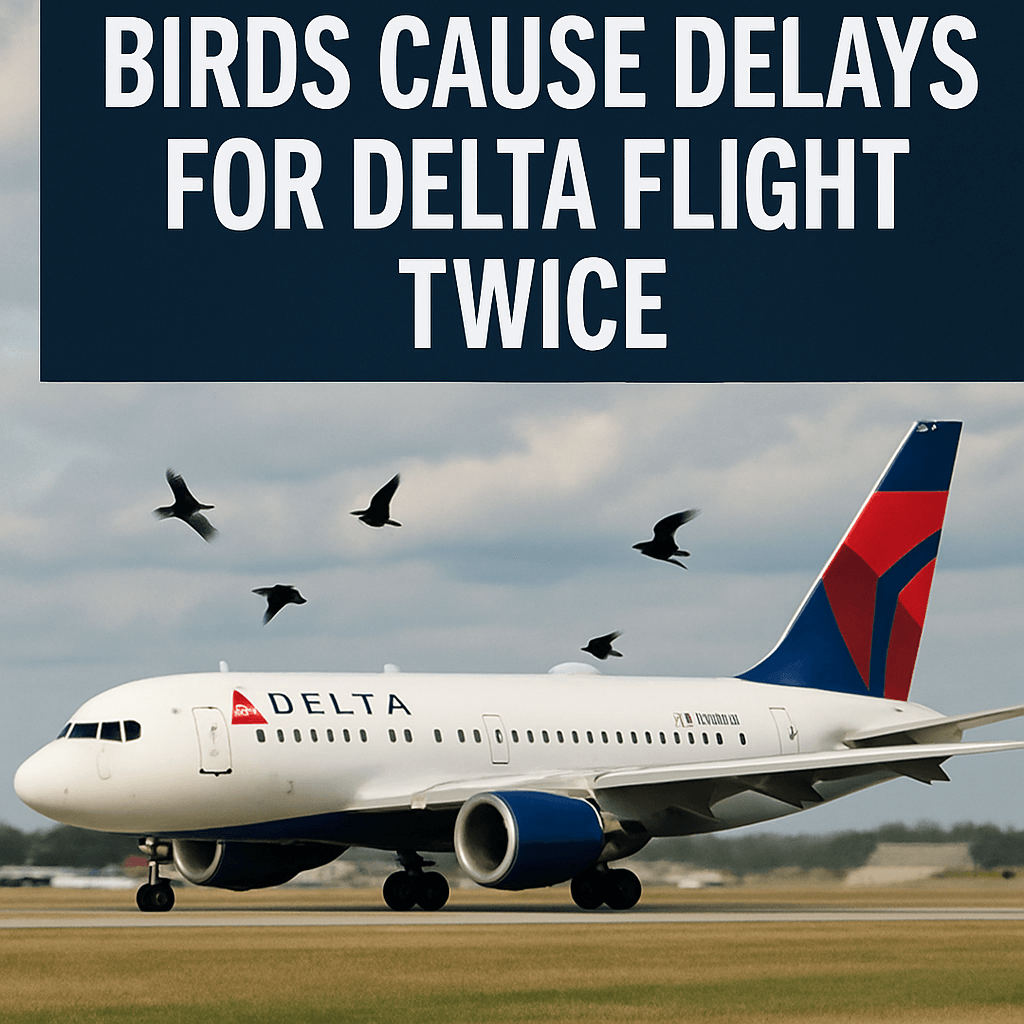Birds Cause Delays for Delta Flight Twice

Incident Overview
On Saturday, a Delta Air Lines regional jet bound for Madison, Wisconsin, returned to its Minneapolis–Saint Paul International Airport (MSP) gate twice after two feral pigeons gained access to the cabin. The aircraft, operated as a Delta Connection flight on a Canadair CRJ regional jet, was held on the tarmac for a total of 56 minutes while crew and passengers worked to safely capture the birds.
How the Pigeons Boarded
Preliminary reports indicate the avian stowaways entered through an open service door during ground handling. Standard operating procedure requires that all cabin doors remain closed until pushback clearance, but wildlife can exploit any temporary opening. Once inside, the pigeons flew freely in the 50-seat cabin, disrupting passenger safety briefings and impeding movement in the aisle and near emergency exits.
Technical and Safety Protocols
- Cabin Pressure and Ventilation: Modern regional jets maintain a positive pressure differential; birds flying inside can interfere with air distribution modules but pose little risk to pressurization systems.
- Wildlife Hazard Management: Under FAA Advisory Circular 150/5200-33, airports implement wildlife dispersal programs to reduce bird encounters. MSP’s wildlife team deploys pyrotechnics and trained birds of prey to clear perimeters.
- Capture Techniques: Ground crews used standard netting and improvised barriers—one passenger even used his jacket—to corral each pigeon without injuring the animal or damaging cabin fixtures.
Industry Context and Expert Perspectives
According to Capt. Laura Kim, a senior Delta pilot with over 12,000 flight hours, “Bird incursions inside the cabin are rare but must be treated with the same seriousness as a technical malfunction. Crew resource management and calm coordination ensured a safe resolution.” Wildlife biologist Dr. Marcus Vohs adds that urban pigeon populations often congregate near terminal buildings, increasing the odds of such incidents.
Comparative Incidents and Cost Implications
Over Memorial Day weekend, Delta also diverted Flight 694 from Detroit to Los Angeles after a cabin dog became ill. A veterinarian onboard assisted until medical personnel met the aircraft, resulting in a 2.5-hour delay. Industry data shows that unexpected animal disturbances can cost airlines up to $150 per minute in operational expenses, including crew overtime, gate occupancy fees and passenger accommodations.
Regulatory Framework
FAA regulations mandate that any aircraft returned to gate for safety reasons undergo a security sweep and log the event in the Aircraft Maintenance Log. If structural checks are required, the delay can extend substantially. Airlines also review wildlife strike and incursion reports quarterly to adjust mitigation efforts.
“Safety protocols prioritize passengers and aircraft integrity over schedules,” says a Delta spokesperson. “We appreciate the quick thinking of our team and customers in safely resolving two separate avian intrusions.”